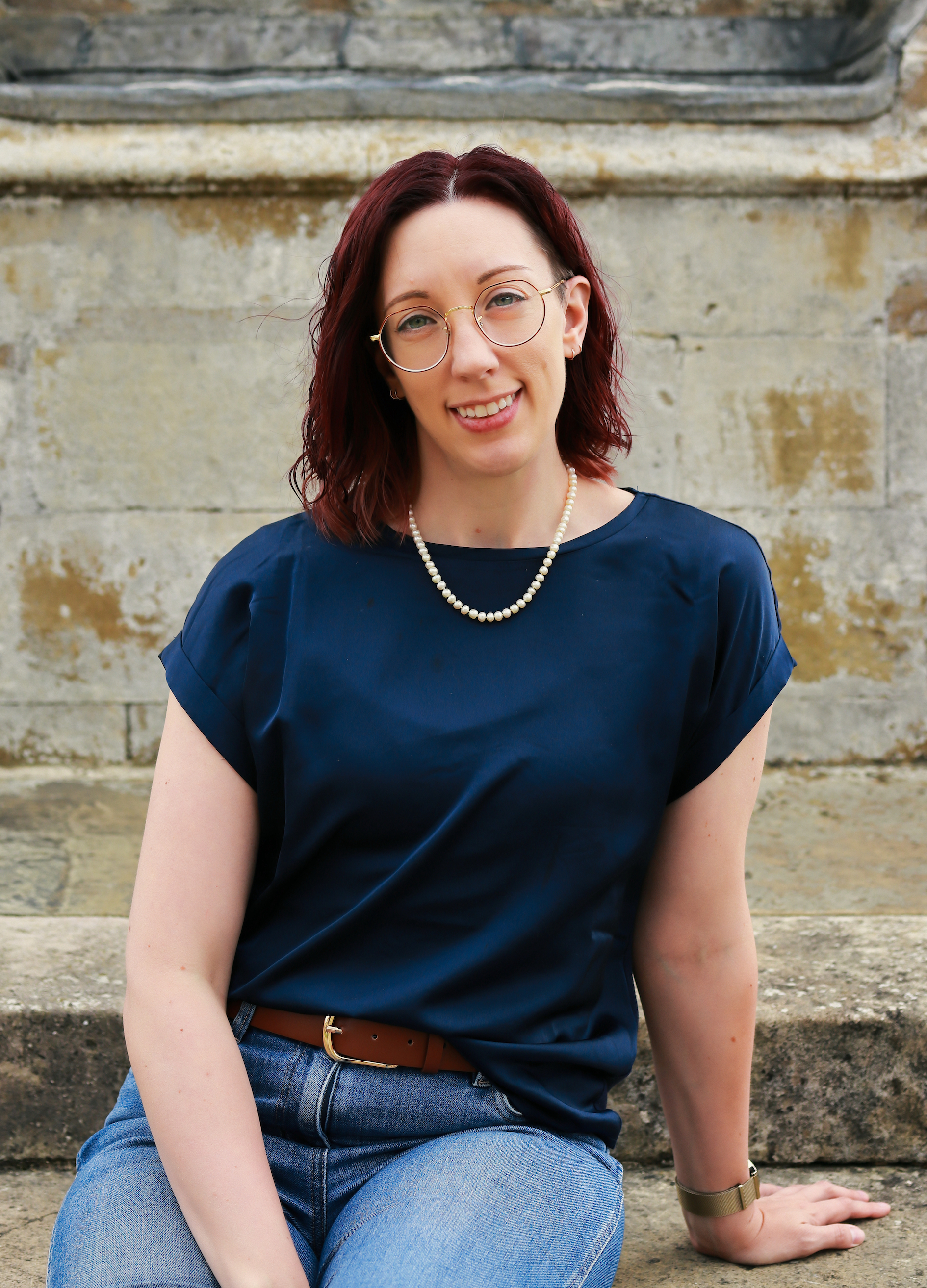Mallory Freeberg, PhD

Human Genomic Data Sharing Expert | Community Builder | Open Science Advocate | Bioinformatics & Metadata Enthusiast | she/her
Hello, and Welcome!
I am the Human Genomics Team Leader at EMBL’s European Bioinformatics Institute in Cambridge, UK. In this role, I lead multiple teams contributing to the Ensembl project, a foundational resource providing scientists with data and tools to study the genomes of a variety of organisms, including humans. I am also responsible for key human variation interpretation services hosted at EMBL-EBI including the DECIPHER platform and the Gene2Phenotype system.
Previously, I was Coordinator for the European Genome-phenome Archive (EGA), a controlled access resource for managing sensitive human omics data. I was responsible for delivery of EGA services and coordinating projects with our collaborators to support our strategic goals. Prior to this, I was the EGA Project Lead for coordinating archive and distribution of nearly 20PB of whole genome sequencing data from the UK Biobank resource. I joined EMBL-EBI in 2017 as part of the Human Cell Atlas (HCA) Data Coordination Platform team, where I developed the HCA metadata standard and worked closely with data generators to submit the first single cell sequencing datasets to the HCA.
How did I get here 
After completing my BSc degree in Bioinformatics at Saint Vincent College, I earned my PhD in Bioinformatics at the University of Michigan studying post-transcriptional gene regulation in the model organisms C. elegans (nematode) and S. cerevisiae (budding yeast). I studied mechanisms of mRNA regulation and expression of small, functional RNAs including microRNAs and germline-specific piRNAs. I also studied protein-RNA interactions and how they contribute to post-transcriptional gene regulation. If interested, you can read more in my public thesis.
I then completed a postdoctoral fellowship at Johns Hopkins University, continuing my exploration of protein-RNA interactions through re-analysis of published deep sequencing data. I also piloted experiments directly sequencing full-length messenger RNAs in nematodes using Oxford Nanopore sequencing to explore the diversity of the nematode transcriptome.
During my postdoc, two key things happened that shaped the trajectory of my career. First, I gained an appreciation for the challenges facing researchers who want to re-use published datasets. Second, I joined the Galaxy Project team to develop and deliver bioinformatics training. These led to solidifying my passion for “Science as a Service”, specifically building and maintaining scientific services and infrastructure to support all researchers across the life sciences.
![]() Connect with me on LinkedIn and BlueSky
Connect with me on LinkedIn and BlueSky
![]() Check out my CV
Check out my CV
Communities 
Some really cool communities that I am proud to be associated with:
Global Alliance for Genomics & Health
A policy-framing and technical standards-setting organization seeking to enable responsible genomic data sharing within a human rights framework
Open Life Science
A mentorship and training program for people interested in applying open principles in their work and becoming Open Science ambassadors in their communities
ELIXIR
A European life sciences infrastructure organisation which brings together scientists from more than 23 countries and more than 250 research institutes to build and run services that enable researchers to access and analyse data, to improve the value and impact of life science research on public health, the environment, and the economy
Galaxy Training Network
A collection of open bioinformatics tutorials and training resources developed and maintained by the global Galaxy community
Academic record 
Interests 
![]() I love all things Open Science: open data, open and welcoming communities, open software, open workflows, open training materials, open publishing and peer-reviewing, oh my!
I love all things Open Science: open data, open and welcoming communities, open software, open workflows, open training materials, open publishing and peer-reviewing, oh my!
![]() I love bringing people together who share common goals and have complementary talents to make great science happen
I love bringing people together who share common goals and have complementary talents to make great science happen
![]() I love mentoring people to help them achieve their professional and personal goals
I love mentoring people to help them achieve their professional and personal goals